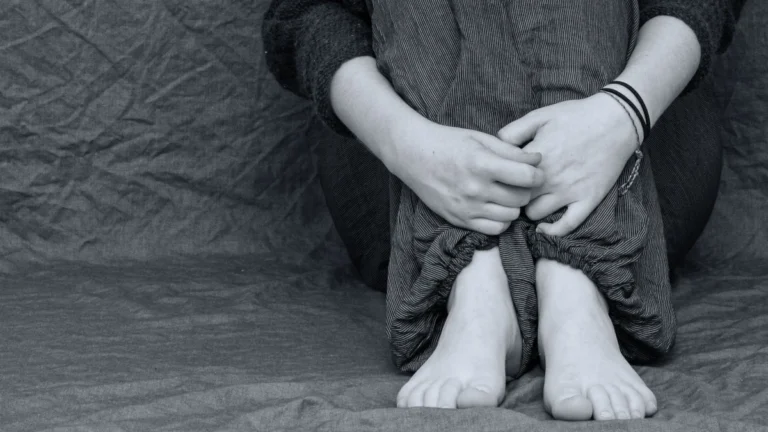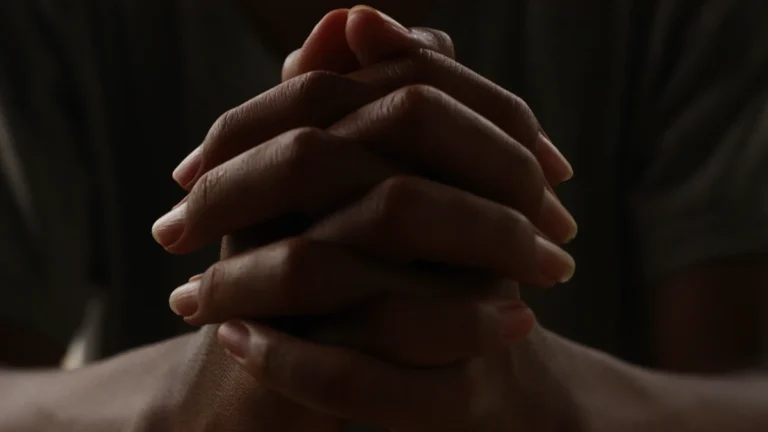Lessons in Staying Mobile, Minimizing Exposure, and Making Yourself Too Lean to Feast On
I bloomed late in certain departments of life. Not by design; fate just shuffled me into a lousy hand and left me to play it. One of those hands was higher education.
At fourteen the question of what to do next hovered like bad weather. Mandatory schooling was ending and the local equivalent of high school gaped ahead. Problem was, I grew up out in the sticks — no glittering academies within walking distance, only the slow, honest trades of a family that made things with its hands. Artisans. Hard work, steady craft, respectable but academically barren. No diplomas dangling from grandfather’s mantlepiece.
My father steered me toward an apprenticeship. Not by bayonet — more by that quiet paternal pressure that feels like love until you try to refuse. I didn’t have the heart to push back, and so he never knew the other urges I hid.
It took a decade, a stray life-trajectory that dumped me in France, and then one late-night exam to unlock the university door. Law school followed. France — the picturesque incubator of revolution, the land of Bastille storms and rousing anthems, the ostensible cradle of modern democracy. Here, I was told, I’d learn how to realize the will of the people. By the people, of the people, for the people, as Lincoln said in that ritualized American cadence at Gettysburg.
I studied tax law and contracts. One of the first hard lessons in tax law is the theory of consentement aux impôts — consent to taxation. In short: by living in France and among the French you’re assumed to have signed up for the full tax package. It is not expropriation by random force, we are assured; it’s a contract, a social compact binding all souls within the national territory.
It’s celebrated as one of the French Revolution’s crowning achievements. Carved into the rhetoric of the republic — Res Publica, the thing of the people. Lofty, incandescent ideals.
But strip away the rhetoric and the kernel is ugly simple: when you vote, you hand whoever wins a carte blanche so long as their mandate lasts — until the next election, when you can change the face but not the mechanism. That carte blanche includes the right to raid your bank account, to claim your earnings, to appropriate what you own and will own. Indefinitely. No immediate recourse. Election day is the only day the crowd gets to shout; the rest of the time the menu is fixed and you’re forced to choose from what’s offered. Vote, then step aside while those chosen execute “your will.”
This whole set-up is accidental, as many public institutions are. It’s always been a kind of administrative sleight-of-hand: those who govern need a justification — a moral gloss — to relieve you of your property. Better if they can claim it’s for some noble common good, that you actually agreed by casting a ballot. Voilà: not theft, but democracy.
Ancient Athens had the same sickness. Demagogues massaged public opinion and rallied those with little to lose against those who actually had something at stake. The dispossessed were often in the majority; manufacturing consensus was relatively painless. The mechanics haven’t changed. Only the props do.
Look at CO₂ taxes. The language is virtuous — we’re saving the planet — but the mechanism is simple extraction: further levies on those who still do honest work. Call it population mining if you like — cattle mining even. To the state, we’re livestock: obedient, predictably led, theoretically incapable of making rational choices for ourselves. Hence the need for benevolent shepherds with milking permits.
When I first grasped taxation’s real architecture as a young man, I joked — half in satire, half in despair — that sooner or later we’d be taxed on the air we breathe. It was a laughable hyperbole. Everyone laughed with me. Who’s laughing now?
CO₂ levies and their cousins reveal the lie at the heart of taxation more starkly than many absurd fees ever could. Taxes are taken by those who can take them from those who can’t effectively resist. The “for the common good” line rings hollow — as hollow as promises made on the campaign trail as voters tick boxes for the least unoffensive set of platitudes.
The public apparatus needs money for its own maintenance and for the countless virtue-signaling vanity projects that sprout from it — projects that will never yield a return anyone sensible could call useful. When public coffers tighten, the state’s appetite grows bolder: the rationale can be anything, the goal is the plunder. “Eat the rich” becomes the chant, but the rich in these slogans are seldom the true moneyed class. They are not the offshore billionaires shielded by fleets of lawyers and legions of opaque trusts. The “rich” the state eats are ordinary people: the normie with a paid-off house, the tradesman with a slightly nicer car. The real elites have the political duct tape and the legal firewall; the rest of us are the sacrificial meat.
At the crown of my master’s degree I handed in a thesis on Article 6 ECHR and its application to taxation. This was decades ago. I attacked the fiction of “consent.” What consent exists when the alternative is exile? When refusing “the full Monty” of taxation means uprooting your life to find a comparable, often nastier regime elsewhere? Escape is effectively barred for us normies: the consequences are too heavy for the average citizen to carry.
All the state needs is fear. The penalty for resisting tax collection is draconian — penalties for noncompliance are nearly as harsh as those for violent crime. They’re not joking. Pay or face severe consequences. Compliance is bought with dread.
I’ve lived it firsthand. I run a tiny business — one man, one stubborn shop — yet independent for more than fifteen years. For three of those years the tax office decided to bless me with the full inquisition: a grand audit. My wife panicked the moment the letter arrived. Not because we had something to hide, but because an envelope with the state’s seal carries the same weight as a death notice. She knew I play my accounts straight, but the very sight of official stationery triggered her amygdala into meltdown. And she’s not alone. Most people shiver the same way — understandably so. That’s the trap: your brain chemistry plays along with their intimidation theater.
So I prepared. Calm, deliberate, stoic. Three years scrutinized line by line, and the conclusion? A zero-writ: no wrongdoing, no penalty. The inspector even remarked that I was “aggressive” in optimizing my tax exposure. Aggressive? No — simply alive. Tax minimization is not a crime; it is a duty. Never pay a centime more than the absolute minimum they can lawfully wrench from you. That is not rebellion; it is survival.
So why bother analyzing? You’ll say: they’ll take the money anyway; seeing the machinery for what it is won’t change much.
True enough. I don’t stand here waving a flag for revolution. My argument in previous pieces has been stealth, not street theater. Avoid where you can. Taxes are often unavoidable.
But acknowledging the truth shifts something deeper: it alters your mental composure, your orientation toward life. It teaches you when your amygdala — that tiny, furious organ that manufactures fear — is hijacking your cognition. The amygdala was useful when we shared the steppe with predators and stampeding herds; it saved lives. In modernity it’s a liability. It converts every tax letter into a panic attack and turns rational strategy into reflexive capitulation.
And that’s precisely why rulers weaponize fear. Fear and outrage accelerate compliance. A panicked populace does not deliberate; it bargains. Give me something that seems to soothe — quickly — and it will accept almost anything.
History is gruesome about this. Majorities have consented, in waves of panic and fury, to exterminate those labelled unworthy. More recently, fear has been used to isolate the noncompliant — to ostracize and detain people over medical dissent — and now to penalize those deemed to emit the “wrong” gases. Facts are irrelevant to cults. Narratives that tug the amygdala are enough; facts only slow the conversion.
Fear is lubricating grease for power. Littlefinger’s line from Game of Thrones fits here: chaos is a ladder. Disorder smooths the climb for the unscrupulous, furnishing them with rank, wealth, and impunity at the expense of the many.
Here is the part you won’t hear in polite society: you still have some moves left. If you own immovable assets — real estate — then congratulations, you’ve shackled yourself. A house is a gilded cage. Governments adore homeowners, especially those who live slightly above their means, because such people can be taxed with absurd levies. Renters don’t escape — they pay through rent — but at least renters can flee when the tide shifts. Owners are nailed to the ground.
The dispossessed masses are the bull in the democratic ring; they hold the votes, and the state will always protect their interests at the expense of those who have. If you’re a small entrepreneur and not latched onto one of the officially sanctioned subsidy scams, you are ripe for extra milking. Run a business and you’re “rich” by definition, even if you’re sleeping on a mattress beneath your desk. Organize accordingly.
In Austria we have a saying: you can’t pick the pockets of a naked man. The trick is not to be naked, but to impersonate him. Financially mimic poverty. Appear lean, elusive, unappetizing. Because the vultures are circling, and they gorge only on visible flesh.
I’ll say it plainly: there’s little the individual can do to stop the train. If you’ve read this far, you belong to a tiny, stubborn minority that refuses simple illusions. That matters — not because it will topple the system, but because it clarifies the map. CO₂ taxes are not the terminus; they’re one more toll gate. Prepare accordingly — with eyes open, nerves steeled, and a plan that’s more cunning than faith.




